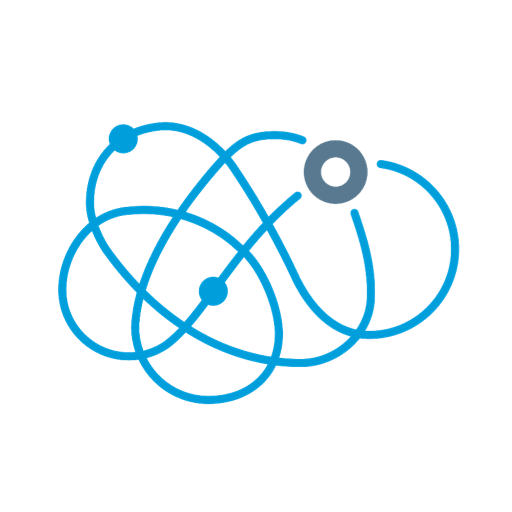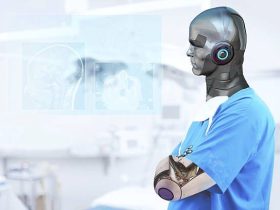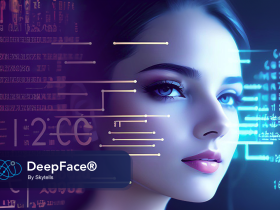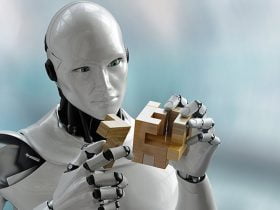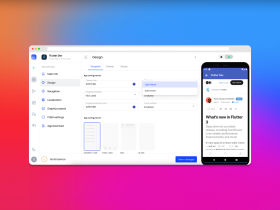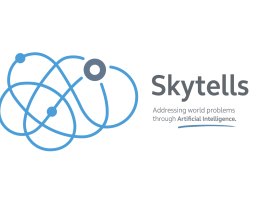ChatGPT is a revolutionary new technology that is set to revolutionize the way we work. It is a chatbot that uses natural language processing and machine learning to automate conversations with customers and employees. This technology has the potential to replace many jobs that are currently done by humans. In this article, we will discuss the top 5 jobs that are likely to be replaced by ChatGPT. We will look at the advantages and disadvantages of this technology and how it could potentially impact the job market.
How ChatGPT is Transforming the Job Market: What Jobs are Most at Risk?
The emergence of ChatGPT, a natural language processing (NLP) technology, is transforming the job market in a variety of ways. ChatGPT is a powerful tool that can automate conversations and provide customer service, making it a viable alternative to human labor. As a result, many jobs that involve customer service, such as call center agents, are at risk of being replaced by ChatGPT.
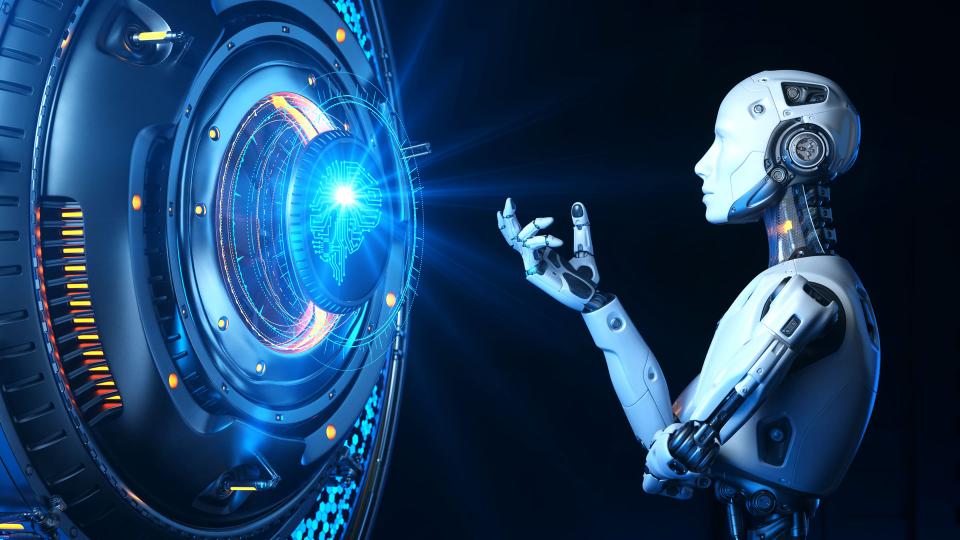
In addition, ChatGPT can be used to automate other tasks, such as data entry and data analysis. This means that jobs that involve manual data entry and analysis, such as administrative assistants and data analysts, are also at risk of being replaced by ChatGPT.
Furthermore, ChatGPT can be used to automate tasks that require creativity, such as writing and content creation. This means that jobs that involve creative tasks, such as writers and content creators, are also at risk of being replaced by ChatGPT.
Finally, ChatGPT can be used to automate tasks that require problem-solving skills, such as customer service and technical support. This means that jobs that involve problem-solving, such as customer service representatives and technical support specialists, are also at risk of being replaced by ChatGPT.
Overall, ChatGPT is transforming the job market in a variety of ways, and many jobs that involve customer service, data entry and analysis, creative tasks, and problem-solving are at risk of being replaced by ChatGPT. As a result, it is important for workers to stay up to date on the latest technologies and to develop skills that are not easily automated in order to remain competitive in the job market.
Exploring the Impact of ChatGPT on the Future of Work: What Jobs are Most Likely to be Replaced?
The advent of artificial intelligence (AI) and natural language processing (NLP) technologies has enabled the development of ChatGPT, a conversational AI system that can generate human-like responses to user queries. As ChatGPT continues to evolve, it is likely to have a significant impact on the future of work. In particular, certain jobs are likely to be replaced by ChatGPT, as it can provide automated responses to customer inquiries and other tasks that are currently performed by humans.
The Future of Automated Job Replacements
One of the most vulnerable job categories is customer service. ChatGPT can provide automated responses to customer inquiries, freeing up customer service representatives to focus on more complex tasks. Similarly, ChatGPT can be used to automate the process of responding to emails, freeing up employees to focus on more important tasks.
Another job category that is likely to be impacted by ChatGPT is data entry. ChatGPT can be used to automate the process of entering data into databases, freeing up employees to focus on more complex tasks. Similarly, ChatGPT can be used to automate the process of creating reports, freeing up employees to focus on more important tasks.
Finally, ChatGPT can be used to automate the process of creating content for websites and other digital platforms. This could potentially replace the need for content writers, freeing up employees to focus on more important tasks.
In conclusion, ChatGPT is likely to have a significant impact on the future of work. Certain job categories, such as customer service, data entry, and content writing, are particularly vulnerable to automation by ChatGPT. As ChatGPT continues to evolve, it is likely to have an even greater impact on the future of work.
The Rise of ChatGPT: What Jobs are Most Vulnerable to Automation?
The rise of ChatGPT, a natural language processing (NLP) system, has raised questions about the potential for automation to replace certain jobs. While automation has been a part of the workforce for decades, the emergence of ChatGPT has the potential to automate more complex tasks. This raises the question of which jobs are most vulnerable to automation.
Research suggests that jobs that involve repetitive tasks, such as data entry, are most vulnerable to automation. These jobs are often low-skill and low-wage, and can be easily replaced by machines. Additionally, jobs that involve a high degree of manual labor, such as assembly line work, are also vulnerable to automation.
Jobs that require more complex cognitive skills, such as problem-solving and decision-making, are less vulnerable to automation. These jobs often require a high degree of creativity and critical thinking, which are difficult for machines to replicate. Additionally, jobs that involve a high degree of interpersonal interaction, such as customer service, are also less vulnerable to automation.
What Jobs Are Most likely to be replaced by AI ?
- Administrative and clerical jobs
- Jobs in customer service
- Telemarketing and sales jobs
- Data entry jobs
- Accounting and bookkeeping jobs
- Manufacturing and production jobs
- Transportation jobs
- Journalism Jobs
- Front-end Development Jobs
- Financial Jobs
- Pathological Jobs
Overall, the jobs most vulnerable to automation are those that involve repetitive tasks, manual labor, and low-skill work. As technology continues to advance, more complex jobs may become vulnerable to automation. Therefore, it is important for workers to stay up-to-date on the latest technology and develop skills that are difficult for machines to replicate.
ChatGPT and the Future of Work: What Jobs are Most Likely to be Automated?
The automation of jobs is an increasingly important topic in the modern workplace. As technology advances, more and more jobs are being automated, leading to a shift in the way people work. This shift has implications for the future of work, as certain jobs are more likely to be automated than others.
In general, jobs that involve repetitive tasks are most likely to be automated. This includes jobs such as data entry, customer service, and assembly line work. Automation can also be used to automate more complex tasks, such as medical diagnosis and legal research. In addition, jobs that require a high degree of precision, such as accounting and financial analysis, are also likely to be automated.
The automation of jobs also has implications for the future of work. As more jobs are automated, there will be a need for new types of jobs that require more creativity and problem-solving skills. This could lead to an increase in the demand for jobs such as software developers, data scientists, and artificial intelligence engineers.
In conclusion, the automation of jobs is an important issue in the modern workplace. Certain jobs, such as those involving repetitive tasks and those requiring a high degree of precision, are more likely to be automated. This shift in the way people work has implications for the future of work, as new types of jobs will be needed to fill the gap left by automation.
ChatGPT and the Future of Employment: What Jobs are Most Likely to be Replaced?
The rise of artificial intelligence (AI) and its application to the workplace has raised questions about the future of employment. In particular, the development of chatbot technology, such as ChatGPT, has raised concerns about the potential for automation to replace certain jobs. While it is difficult to predict the exact impact of AI on the job market, there are certain occupations that are more likely to be replaced by automation than others.
One of the most vulnerable occupations is data entry. As AI technology continues to improve, it is becoming increasingly capable of performing data entry tasks with greater accuracy and speed than humans. This is especially true for ChatGPT, which is designed to quickly process large amounts of data and generate accurate results. As a result, data entry jobs are likely to be replaced by automation in the near future.
Another occupation that is likely to be replaced by automation is customer service. ChatGPT is designed to provide customers with quick and accurate responses to their inquiries. This technology is already being used by many companies to provide customer service, and its use is likely to increase in the future. As a result, customer service jobs are likely to be replaced by automation in the near future.
Finally, jobs that involve repetitive tasks are also likely to be replaced by automation. ChatGPT is designed to quickly and accurately complete repetitive tasks, such as data entry and customer service. As a result, jobs that involve repetitive tasks are likely to be replaced by automation in the near future.
In conclusion, the development of AI technology, such as ChatGPT, is likely to have a significant impact on the job market. Data entry, customer service, and repetitive tasks are all likely to be replaced by automation in the near future. As a result, it is important for workers to be aware of the potential for automation to replace certain jobs and to prepare for the changes that may come.
You May Also Like
Conclusion
The rise of ChatGPT is a clear indication that the future of work is changing. ChatGPT is a powerful tool that can automate many of the tasks that are currently done by humans, such as customer service, data entry, and other administrative tasks. As ChatGPT continues to evolve, it is likely that more jobs will be replaced by this technology. The top five jobs that are most likely to be replaced by ChatGPT are customer service representatives, data entry clerks, administrative assistants, telemarketers, and receptionists. As ChatGPT becomes more advanced, it is likely that more jobs will be replaced by this technology. Therefore, it is important for workers to stay up to date on the latest technology and be prepared to adapt to the changing job market.
